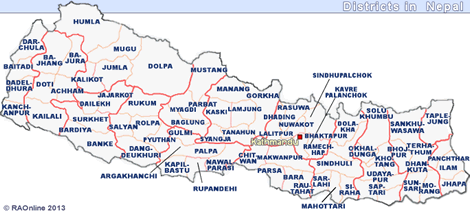Nepal's mainstream parties and Maoists have reached agreement on a basic alliance against the monarchy. That they were talking was not new: all sides have kept in contact throughout the ten-year-old conflict. But this time they have developed a serious agenda which offers the framework of a peace deal. Their dialogue had India's tacit backing and the deal was finalised at meetings in New Delhi. The agreement reflects some important achievements: the Maoists have formally committed themselves to joining a multiparty system and the mainstream parties have signed up to a process of constitutional change. Each side has recognised past mistakes and vowed not to repeat them. But many issues present challenges which have only been deferred. The Maoists reject the parties' call to restore the last parliament and the parties have not accepted the rebels' republican agenda. Questions of disarmament, monitoring and future talks facilitation have been brushed over lightly. And it is not clear if the new alliance will hold out an olive branch to the king or try to force him into submission. The palace, which runs an embattled government, had tried to conceal its unease as the talks went on but ministers have now gone on the offensive against the new alliance. Conservative Nepali commentators and U.S. diplomats had warned repeatedly of consequences if the parties did a deal with the Maoists. Some critics hoped that the talks would fall apart or be derailed, but the twelve-point November agreement has dramatically - though not yet irreversibly - changed political realities. Why have the parties and Maoists done a deal? They have differing political imperatives, and they have not changed their long-term goals, but there are some grounds for compromise and both have realised that their own strength is not enough to be decisive. The discussions have identified a possible structure for peace talks - progressing via interim arrangements to a constitutional assembly and disarmament - but each issue raises its own problems. The mechanics of dialogue are also far from straightforward. Although all sides had previously kept channels of communication open, formal talks bring risks. This engagement has taken place more comfortably thanks to India's tacit endorsement. However, the negotiators lack the safety net of international legitimacy and open facilitation. The Maoists are prepared and have a clear strategy while the parties are still working out joint positions. Each side has been happy to publicise certain details but the text of the November agreement is thin and meetings have necessarily been secretive. The Indians have played their cards close to their chest and left even close allies guessing about their intentions. The parties' willingness to deal with the rebels has raised the stakes for all players in the conflict. It has also brought new risks. This is only a bilateral process; other crucial players - notably the palace - are excluded. The parties are neither fully united nor well prepared and may concede too much too easily as bargaining progresses, while the Maoists retain their arms and could revert to a military approach at any time or could use talks and a loose alliance to build a stronger urban base and squeeze the mainstream parties in their last bastion. The November deal could prompt a violent backlash if the palace feels threatened. Nevertheless, the alliance presents new opportunities:
The ultimate outcome of the talks process cannot be predicted but the loose party-Maoist alliance has created a new dynamic. In their first high-level face-to-face meeting, party leaders and the Maoists have forged a basic plan for joint action against the monarchy. In the weeks to come this plan will take more concrete shape, and discussions will move to a second stage. A range of factors will then affect the approaches of both sides. Internal tensions and calculations of personal advantage may be particularly debilitating for the mainstream parties. As always, both sides will be watching other domestic and international forces and adjusting course accordingly. The king, keen to bolster his own power, still has cards to play. The talks may not in themselves lead to a new peace process but they offer the best hope of breaking Kathmandu's political impasse. International
Crisis Group

|


